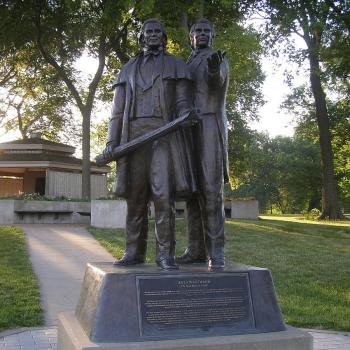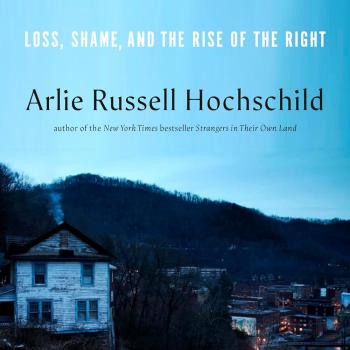Editors' Note: This article is part of the Patheos Public Square on Faith and Reason. Read other perspectives here.
This last year, U.S. Supreme Court decisions like Obergefell v. Hodges and Whole Woman's Health v. Hellerstedt have sent a message: religious reasons aren't welcome here. In a pluralistic society like ours, we can't base our healthcare policies on the Catholic Church's teachings about human life's beginnings any more than we can let our marriage laws be shaped by sharia law on homosexuality.
The idea that parochial, faith-based reasons should be excluded from the political domain has its roots in the political liberal tradition dating back to John Locke and popularized by philosopher John Rawls in the 1970s. Rawls points out that in liberal democracies like ours, citizens will inevitably disagree about basic values because they hold diverse worldviews. In such a democratic society, the basic laws and political institutions have to meet certain standards of reasonability: they have to be justifiable to all reasonable citizens, not just to members of majority religious groups.
When citizens don't share religious convictions, Rawls argues, the only way to ensure equal respect among us is to refrain from appealing to faith-based considerations when adopting and implementing coercive political measures. Instead we should turn attention to, or translate our religious reasons into, what Rawls calls "public reasons" — the considerations all reasonable citizens can get behind independently of their worldviews, faiths, or moral beliefs. The hope of political liberalism is that, if we make political decisions based on public reasons alone, then the institutions and laws we end up adopting will be acceptable to all.
For instance, not every citizen in a liberal democracy will believe that humans were created by God and so have equal worth. But every citizen can see how she will benefit from being guaranteed equal treatment under law. The latter, public reason, can justify our system of due process to any reasonable citizen, whereas the former, religious reason, only succeeds in justifying it to theists.
The standard of reasonableness in public discussion that demands that we set aside faith isn't confined to the political sphere. I teach college courses in ethics and bioethics, and I've noticed students growing increasingly reticent about their religious convictions or values they suspect aren't shared by their peers when we talk about personal decisions and actions. Recently, I was leading a discussion about the end of life with students at a Catholic university. I had students look at a case where a girl under eighteen had a terminal illness and was refusing a treatment that had been shown to be 85 percent effective. When I asked them whether they thought her refusal was a good choice, whether her parents and doctors would be justified in withholding treatment, many of the students insisted that it would be inappropriate to bring their own moral beliefs and faith to bear on their evaluation of these choices. It's unsurprising that kids who grow up hearing that faith is out of place in our political decision-making would infer that it isn't reasonable to bring faith into moral decision-making more generally.
But the political liberal ideal of what reasons count in our political decision-making isn't without its problems. Perhaps the biggest issue that philosophers and theologians have been keen to point out is that reasonability is supposed to ensure that we respect one another as free and equal citizens, but it's not obvious that keeping people from voicing their religious views in political deliberation is the best way to respect each other.
Imagine that your community is trying to decide whether to put money toward repairing local sidewalks, and there is a contingent of Orthodox Jews in the neighborhood who rely on the sidewalks to walk to synagogue on their Sabbath. If you demand that your Orthodox neighbors keep quiet about their religious practices and appeal to some considerations that pertain to everyone in the neighborhood when motioning to set aside money for sidewalk repair, how much respect are you showing them? Wouldn't it be more respectful to gather and listen to the Orthodox neighbors explain the importance of walking the Sabbath to them, and acknowledging the value of the sidewalks for their religious practice, voting to put money toward sidewalk repair despite the fact that you don't participate in that practice? In principle, it doesn't seem like mutual respect between people of different faith has to involve keeping religious reasons out of the discussion.
Our respect for each other as citizens, but also as human beings, can be enhanced when we open up public discussion to faith-based reasons for favoring certain ways of living together. We foster deep respect for each other by trying to understand where others are coming from, learning from others where we can, and trusting others to see our own commitments and beliefs as sensible and good grounds for adjusting how they get along with us, precisely because we regard them as reasonable.




